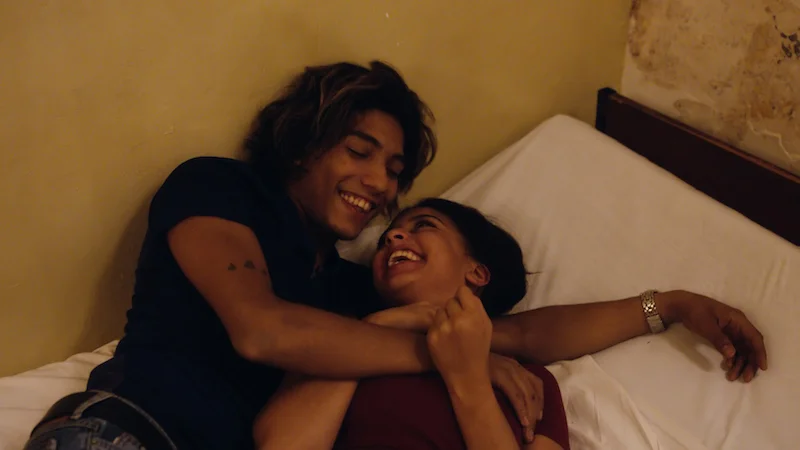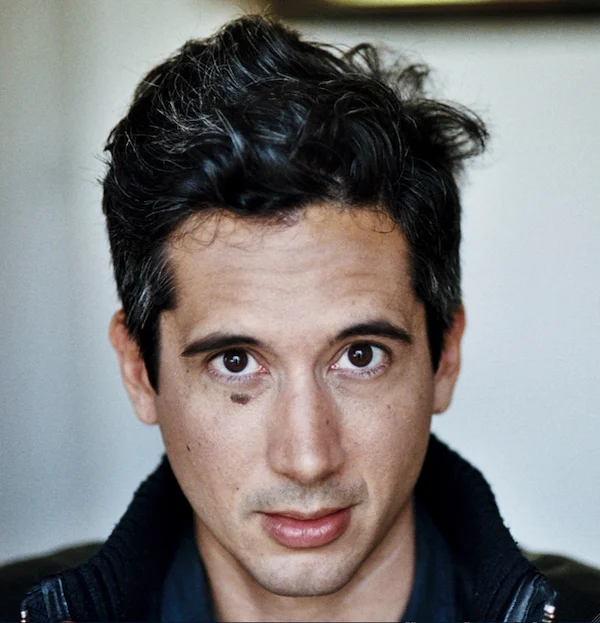From the black and white stock images that kick off the titles of Jean-Bernard Marlin's 'Shéhérazade', the viewer knows they'll be experiencing something different. Even though the film could at first glance appear to be yet another Romeo and Juliet type romance between star crossed lovers, it quickly unfolds into something much more unique and spellbindingly truthful.
Seventeen year old Zach (played by Dylan Roberts) comes out of jail in his native Marseille, only to find that his mother isn't picking him up, she seems to have forsaken him. He is brought to a group home and quickly escapes only to try and reconnect with the life that sent him to prison in the first place. But one day, his friends take him to find a prostitute, and there he meets a girl, Shéhérazade (played by Kenza Fortas) whom he remembers from school. Their encounter isn't romance-perfect at first, though their "meet cute", the moment in which their stars cross in cinematic terms is perfect. And perfectly human.
Will they make it despite the entire world seemingly being against them? Is love possible within an embattled existence? Do you need money to experience romance? These are all questions asked, and answered very personally, within Marlin's touching yet gritty film -- which benefits from two grandiose performances by its leading man and woman, and very intimate cinematography which makes the viewer feel like a fly on the wall of the teens' adventures.
I caught up with Marlin, Fortas and Roberts on a beach in during the Festival de Cannes, where the film screens in the Critics' Week sidebar. While we touched on love, the message of the film and its inspiration, it was a chat that felt as real and as truthful as the film itself.
Jean-Bernard Marlin
How did you come up with this idea, this kind of Romeo and Juliet romance yet so different?
Jean-Bernard Marlin: I got inspired by what I saw in the news. What I read is that a pimp had a beautiful love story with a prostitute in Marseille and I am from Marseille and they were living in a hotel room next to the train station and that's how I started wiring my story. Of course it's a fictional story but I wanted to tell a beautiful, beautiful love story. I didn't realize that the characters are a bit like Romeo and Juliet, indeed. Apart from the end...
I got inspired a little bit by reality because you know when people come out of prison the wives are waiting for their husbands and you see it, what's happening there. I wanted a story based on hope, this light at the end of the tunnel so to speak. In reality, there is love in between these characters.
How did you manage to work together and build such a strong, believable chemistry?
Dylan Roberts: It's the first time I act. Both of us never acted before. We knew each other from school, in the French 6th grade when we were 12 years old.
Kenza Fortas: When we met again something happened and it reinforced our relationship on screen.
We take a certain message from the film that is very hopeful. What is the message that you hope audiences will take away from your characters?
Roberts: The message is that you can experience love, feel it, with or without money. And for a long time. You can see two young people who are happy, live happily together, they are very much in love and you don't need money for that.
Marlin: That's superb!
Fortas: As I said before, from hatred to love there is only one step.
What do you want your audience to come away with from your film?
Marlin: It's hard. At the end of the film when you look at the two characters they look at each other and you know it's true -- you feel it. That for me is of paramount importance. I think I have seen that somewhere already on the street, a universal moment and I'm happy about it. Really happy about it.
Do you believe in that kind of love in your own life?
Marlin: Yes. I have to believe in it. I'm not saying that it's something I've experienced in my life but I know that it exists and I wrote it. I felt it inside of me, it was a gut feeling, my feelings that I put on screen. I need to believe in it.
What has been your experience here in Cannes?
Fortas: Amazing!

